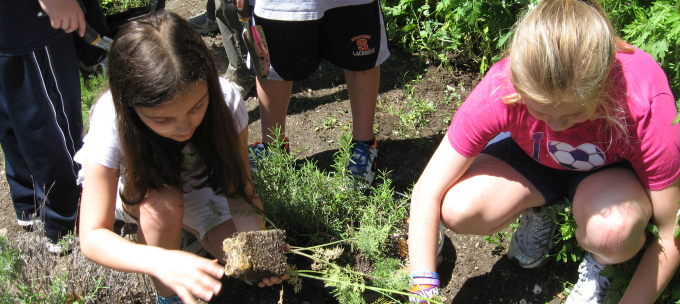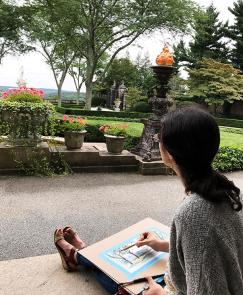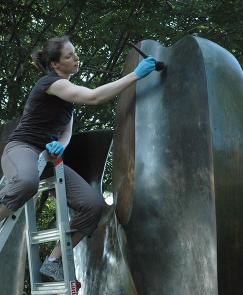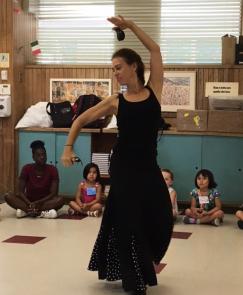

Local students plant crops in the Teaching Garden at Pocantico.
Education & Community Outreach
The Rockefeller family intended The Pocantico Center to be an "uncommon place for the common good." We partner with schools, libraries, colleges, and cultural and community organizations to provide people with immersive experiences in nature, history, culture, and art that cultivate learning and expand horizons. The Pocantico Center also works with local organizations to provide tickets and help with transportation for those who might otherwise not be able to attend.

Community Arts Residency
The RBF awards an annual Community Arts Residency to a local arts group that works with underserved communities in the Hudson Valley. The award includes a $25,000 cash prize and allows the selected organization to use the 900-square-foot studio at the David Rockefeller Creative Arts Center as a satellite location to conduct programs, workshops, exhibitions, performances, and other artistic initiatives for up to six months.

Art, History, and Cultural Immersion for College Students
During curated class visits, college students take inspiration for their art and history courses from Pocantico’s varied architectural styles, breathtaking vistas, and dynamic collections. Participating colleges have included SUNY Purchase, Bard Graduate Center, the School of Visual Arts, Columbia University, and others.

International Conservator-in-Residence Program
The Pocantico Center hosts three art conservation and restoration students from Mexico each year. Working with the collections and staff at Kykuit, these students encounter international perspectives and experiences with collections stewardship. The program's students come from three universities: Escuela de Conservación y Restauración de Occidente, Escuela Nacional de Conservación, Restauración y Museografía, and Universidad Autónoma de San Luis Potosi: Facultad del Hábitat. The Mexican Cultural Institute of New York generously supports this program.

Tarrytown Arts Camp
The Pocantico Center supports the Tarrytown Arts Camp, where local children spend an enriching summer learning from world-renowned, multidisciplinary teaching artists. Operated by the Tarrytown school district, the camp provides scholarships to underserved students. The experience extends to the entire community during weekly evening concerts featuring the teaching artists at Sleepy Hollow High School.
School Garden
Pocantico’s student gardening program teaches third and fourth graders from local elementary schools about health, wellness, and sustainability. Offering a chance to step out of the classroom, the program allows students to enjoy planting and harvesting vegetables, cooking and eating a meal or snack made from their crops, and taking home plants or seeds to apply what they’ve learned at home.